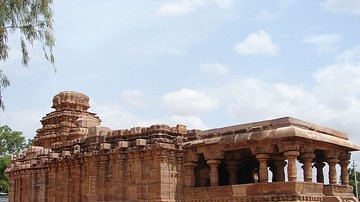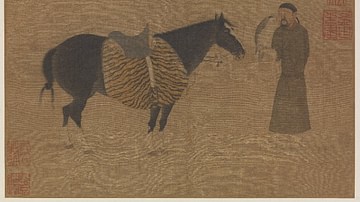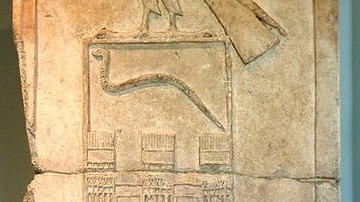Search
Search Results

Definition
Yuan Dynasty
The Yuan Dynasty was established by the Mongols and ruled China from 1271 to 1368. Their first emperor was Kublai Khan (r. 1260-1294) who finally defeated the Song Dynasty which had reigned in China since 960. Stability and peace within China...

Definition
Rashtrakuta Dynasty
The Rashtrakuta Dynasty ruled parts of South India from the 8th to the 10th century CE. At its zenith, their kingdom included the modern state of Karnataka in its entirety along with parts of the current Indian states of Tamil Nadu, Andhra...

Article
The Eastern Perspective on the Trinity
All too often, the Eastern perspective on the Trinity is mistakenly overlooked by Western society in the study of Church History. This is unfortunate, for men like Gregory of Nazianzus (329–390 CE) and John of Damascus (676–749 CE) offered...

Definition
Artaxiad Dynasty
The Artaxiad (Artashesian) dynasty ruled ancient Armenia from c. 200 BCE to the first decade of the 1st century CE. Founded by Artaxias I, the dynasty would ensure Armenia enjoyed a sustained period of prosperity and regional importance...

Definition
Sun-Tzu
Sun Tzu (l. c. 500 BCE) was a Chinese military strategist and general best known as the author of the work The Art of War, a treatise on military strategy (also known as The Thirteen Chapters). He was associated (formally or as an inspiration...

Definition
Ancient Chinese Warfare
In ancient China warfare was a means for one region to gain ascendancy over another, for the state to expand and protect its frontiers, and for usurpers to replace an existing dynasty of rulers. With armies consisting of tens of thousands...

Definition
Abbasid Dynasty
The Abbasids were an Arabic dynasty that initially ruled over most of the Islamic empire (save some western parts) after assuming the caliphate in 750 CE, later on, their empire fragmented, however, they retained spiritual supremacy as caliphs...

Definition
Argead Dynasty
The Argead dynasty, the ancient Macedonian house of Dorian Greek origin, lasted from the 7th century to 310 BCE. The mythological founder of the dynasty was King Caranus but it was under Philip II of Macedon (382-226 BCE) that the Macedonian...

Definition
Jurchen Jin Dynasty
The Jurchen Jin dynasty (meaning “Golden”) ruled parts of China, Mongolia, and northern Korea from 1115 to 1234 CE. The Jurchen originated from Manchuria, but in conquering the neighbouring Liao empire of the Khitan and parts of Song China...

Definition
First Dynasty of Egypt
The kings of the First Dynasty of Egypt (c. 3150 - c. 2890 BCE) all worked toward the same ends: increasing trade, expansion of the kingdom through military campaigns, engaging in building projects (such as monuments, tombs, and temples...